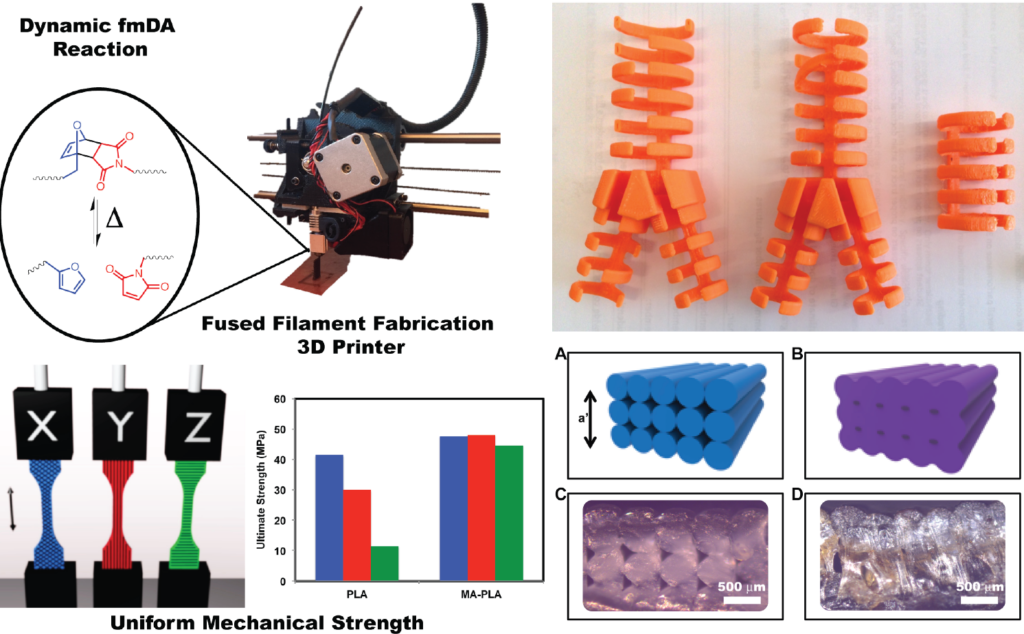Our research lies at the interface of organic and materials chemistry. We use the principles of organic synthesis and supramolecular chemistry to create new polymeric materials for applications in energy storage and 3D printing.
Porous Polymers and Covalent Organic Frameworks
To design reliable materials for the energy sector, a thorough understanding of the underlying principles controlling those materials is paramount. One of the more promising classes of materials being developed for use in energy harvesting and storage are covalent organic frameworks, or COFs. COFs are a class of porous two-dimensional polymers whose structure is controlled by interplay between non-covalent aromatic interactions (π-stacking) and dynamic covalent bond formation. My group uses the tools of organic synthesis to develop structure-function relationships that are relevant to the design of microporous materials, including COFs, for energy storage applications.

3D printing
3D printing is a technology of growing importance that requires new materials for its successful implementation in the fields of biomedicine, engineering and manufacturing. Our group uses the power of thermodynamically controllable reactions to enable highly functional materials to be formed into custom, mechanically reliable shapes and sizes. We are using concepts from dynamic covalent chemistry and self-healing polymer chemistry to create easily printable materials that have the necessary mechanical strength and durability to print custom objects, such as prosthetics or implants (e.g., the model trachea implant below).

Funding
Our work would not be possible without generous support from these agencies and companies.

